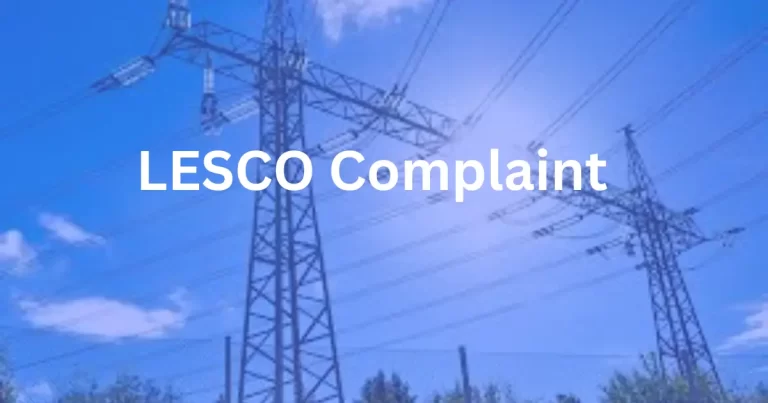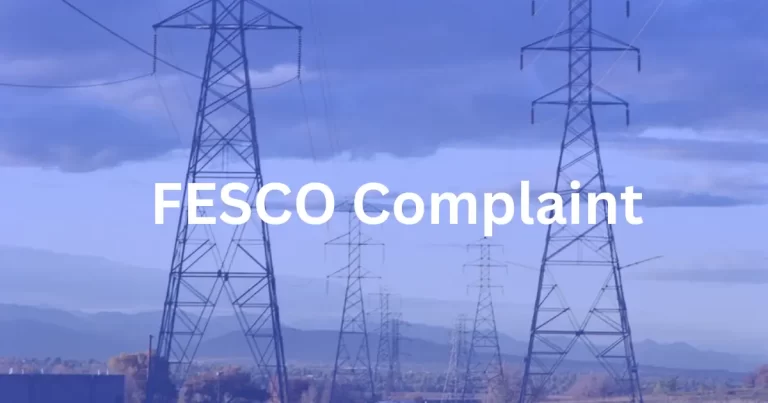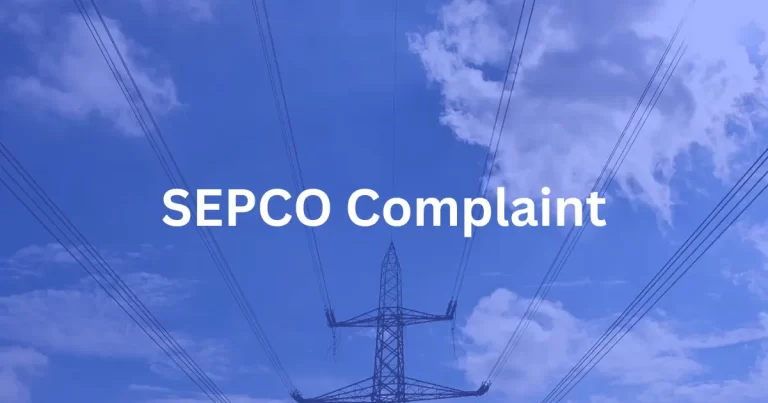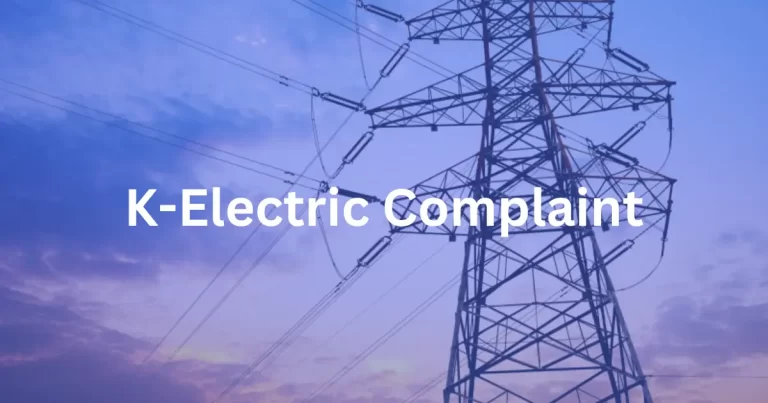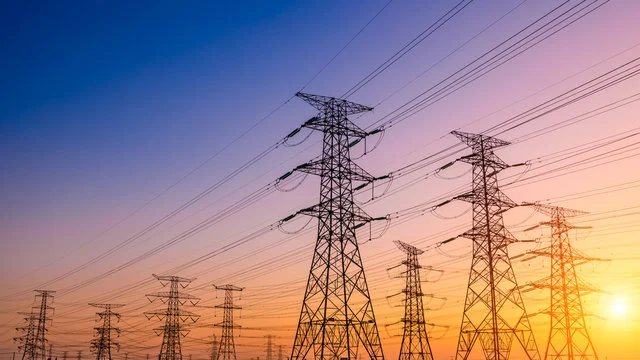As the primary authority responsible for water and power development in Pakistan, WAPDA (Water and Power Development Authority) stands as the key player of the nation’s electric power infrastructure. Through its extensive network and operations, WAPDA plays an indispensable role in ensuring the seamless delivery of electricity to both residential households and commercial enterprises spanning the entire country.
In this context, grasping the nuances of your WAPDA bill online becomes an imperative aspect of conscientious energy management and prudent financial planning. By comprehending the intricacies of charges such as unit rates, taxes, and surcharges associated with electricity consumption, individuals and businesses alike can make informed decisions about their energy usage patterns. This understanding not only fosters responsible energy consumption but also empowers consumers to allocate resources effectively, thus fostering a sustainable and economically sound approach to budgeting and energy utilization.
Navigating the WAPDA Electricity Bill
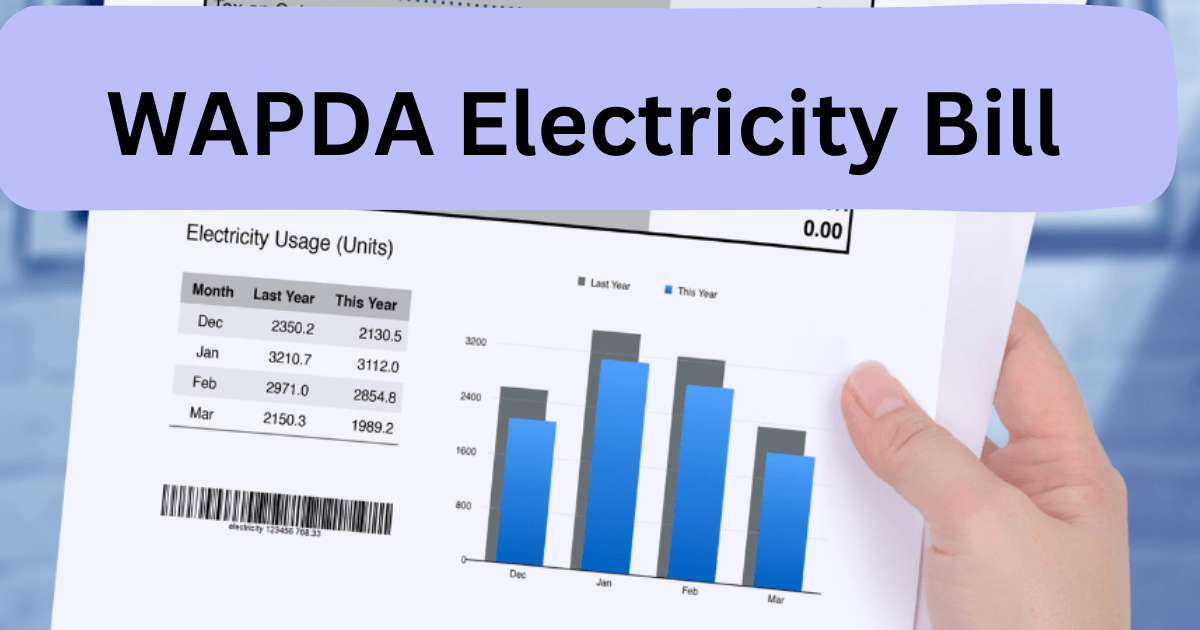
When it comes to comprehending your WAPDA consumer bill, it’s important to familiarize yourself with its components. The bill encompasses various charges, from unit rates to taxes and surcharges. Let’s delve into the specifics:
WAPDA Bill Unit Rates and Consumption
At the core of deciphering your WAPDA bill lies the fundamental calculation of your energy consumption, meticulously quantified in units known as kilowatt-hours (kWh). This quantitative representation serves as the bedrock upon which your electricity charges are meticulously established. The pivotal modus operandi involves the multiplication of your specific electricity usage, as denoted in kilowatt-hours, by a distinct unit rate.
This unit rate, acting as the financial metric for your energy consumption, inherently fluctuates contingent upon the specific electricity distribution company to which you are affiliating. These encompass the notable entities of WAPDA bill MEPCO, LESCO WAPDA bill, WAPDA bill FESCO, WAPDA bill PESCO, WAPDA bill HESCO, WAPDA bill IESCO, WAPDA SEPCO bill, and GEPCO WAPDA bill, each governing distinct regions of the country’s electrified landscape.
By understanding and acquainting yourself with this interconnected framework, you empower yourself to decode the intricate tapestry of charges embedded within your WAPDA bill, thus facilitating an astute comprehension of your energy consumption dynamics.
Distribution Company Breakdown
In the intricate web of Pakistan’s electricity distribution network, each distinctive distribution company assumes the pivotal role of catering to a well-defined geographical region. This geographically tailored approach ensures seamless and efficient coverage of diverse areas across the nation. A tangible illustration of this specialized allocation is exemplified by the Lahore Electric Supply Company (LESCO), whose operational jurisdiction encompasses the vibrant city of Lahore and its contiguous environs. Similarly, the Multan Electric Power Company (MEPCO) undertakes the responsibility of serving the power needs of Multan, showcasing a region-specific allocation of resources and services. These distribution companies bear the weighty mantle of overseeing the distribution of electricity, nurturing the upkeep of critical infrastructure, and orchestrating the comprehensive billing process for consumers within their designated precincts. This nuanced localization allows for more targeted management, streamlined operations, and tailored services that resonate with the unique energy demands of each distinct area.
Taxes and Surcharges
Embedded within a substantial segment of your WAPDA bill resides a collection of diverse fiscal obligations, intricately woven into the fabric of your electricity charges, and mandated by the government. These financial impositions encompass an array of significant components, prominently featuring the General Sales Tax (GST), a levy imposed on goods and services, which intricately factors into your overall cost of electricity. Moreover, the expanse of these fiscal requisites extends to encompass Income Tax, a fundamental contribution levied on earnings, and an assortment of other regulatory charges, each playing an integral role in shaping the financial landscape of your energy consumption. Recognizing the pivotal import of these charges becomes paramount, as they harmoniously amalgamate to delineate the comprehensive expenditure incurred in procuring and utilizing electric power, thus illuminating the symbiotic relationship between these fiscal elements and the holistic cost structure of your electricity bill.
Understanding Tariffs and Charges

Tariffs play a pivotal role in determining the cost of electricity. They are structured based on the type of consumer you are and the amount of electricity you consume. Residential and commercial tariffs differ, with industrial tariffs typically being higher due to higher energy consumption.
Furthermore, some regions may have special tariffs and exemptions for specific types of consumers. For instance, areas with renewable energy sources or hydropower stations might have differential tariff structures to promote clean energy utilization.
Unveiling Renewable Energy Contributions
Pakistan’s energy landscape is undergoing a transformative shift as it gradually integrates environmentally sustainable alternatives into its power generation portfolio. This strategic evolution is evident in the increasing adoption of renewable energy sources, exemplified by the incorporation of wind power and hydropower into the nation’s energy mix.
A striking illustration of this commitment is embodied by significant undertakings like the Ghazi Barotha Hydropower Project, an endeavor that has markedly bolstered Pakistan’s capacity for generating electricity. This conscientious emphasis on renewable energy resonates through deliberate endeavors aimed at recalibrating the intricate tapestry of electricity tariffs, facilitating a harmonious equilibrium between sustainable energy options and reducing dependency on conventional, non-renewable sources.
This collective endeavor embodies Pakistan’s pursuit of a greener, more resilient energy sector, ultimately charting a course toward a cleaner, more sustainable energy future.
Embracing Technological Advancements
The emergence of smart meters has orchestrated a profound metamorphosis in the terrain of electricity billing, ushering in a new era of precision and awareness. These intelligent devices transcend traditional meters by furnishing consumers with up-to-the-minute information concerning their energy consumption, thereby affording them a heightened capacity to scrutinize their usage trends with remarkable efficacy. This real-time data stream equips consumers with a potent toolset, enabling them to embark on an enlightened journey of energy management.
By unraveling nuanced insights into their consumption habits, smart meters empower individuals to embark on informed pathways of energy conservation, effectively curtailing unnecessary wastage and fostering a culture of judicious energy stewardship. In essence, these devices transcend the conventional billing paradigm, nurturing a synergy between technological innovation and responsible energy consumption.
Payment and Billing Platforms
Recognizing the imperative of seamless and convenient bill settlement, WAPDA has diligently established a spectrum of user-friendly avenues for payment facilitation. These encompass a comprehensive array of options, ranging from user-friendly online platforms accessible through computers and mobile devices, to dedicated mobile applications tailor-made for the modern consumer. Furthermore, for those who prefer a more personalized touch, a network of specially designated payment centers is strategically positioned to cater to diverse preferences.
Opting for the expediency of online bill settlement, either via the official WAPDA website or the pertinent distribution company’s portal, emerges as a strategic choice that not only economizes time but also intricately simplifies the payment trajectory, thus encapsulating WAPDA’s commitment to delivering optimal customer experiences.
Regional Impact and Infrastructure Development
The distribution of electricity assumes a diversified complexion contingent upon the geographical expanse, thereby inherently exerting an impact on the billing protocol. This variance is particularly palpable in regions such as Karachi, where the aegis of electricity provisioning is entrusted to K-Electric (KE), an entity that operates autonomously from WAPDA due to historical determinants.
Within this distinctive framework, KE shoulders the responsibility of not only overseeing the intricacies of the city’s electricity infrastructure but also executing the billing process directly for its consumer base. This localized operational model underscores the historical trajectory and unique dynamics of Karachi’s electricity distribution landscape, wherein KE functions as a dedicated steward of the city’s power supply, affirming its distinct status in the larger canvas of Pakistan’s energy domain.

